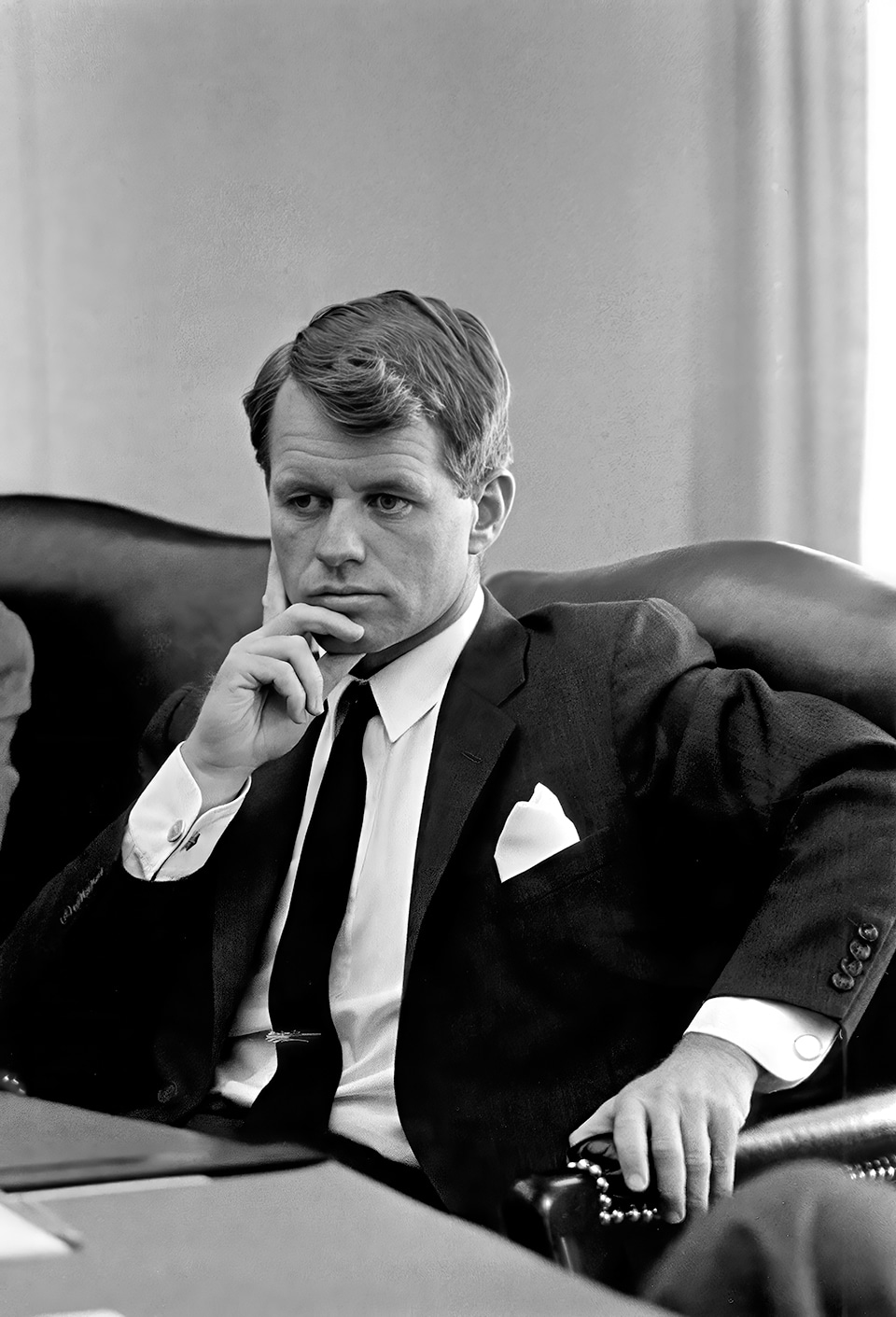RESOURCES
PEOPLE
Sen. Robert Francis Kennedy
1925-1968
Robert Francis Kennedy was born on November 20, 1925, in Brookline, Massachusetts, the seventh of nine children in the prominent Kennedy family. A Navy veteran of World War II, he graduated from Harvard University and the University of Virginia School of Law. Known for his fierce loyalty, moral conviction, and growing empathy for the oppressed, he quickly emerged as one of the most dynamic political figures of the 20th century.
Appointed by his brother, President John F. Kennedy, Robert F. Kennedy served as United States Attorney General from 1961 to 1964. Among the most pressing civil rights issues he faced during his tenure was the unprecedented school closure in Prince Edward County, Virginia. From 1959 to 1964, the county shut down its entire public school system to resist court-ordered desegregation, becoming the only locality in the nation to close its schools for five years in defiance of Brown v. Board of Education. While white children attended private segregation academies funded by public tuition grants, hundreds of Black and many poor white children were left without access to formal education.
The Kennedys understood that if Prince Edward County succeeded in nullifying federal desegregation mandates, it could encourage other Southern communities to do the same. The Justice Department attempted to intervene in Griffin v. County School Board of Prince Edward County, a legal challenge to the closures, but a federal court denied the request. By 1963, the Supreme Court signaled it would hear the Griffin case, but a final decision would not come until the following year. With another school year approaching and the schools still shuttered, civil rights organizations increased pressure on the Kennedy administration to act.
In response, Robert F. Kennedy appointed New York attorney William vanden Heuvel as his special assistant to address the crisis. Vanden Heuvel was tasked with organizing a temporary, year-long system of Free Schools to educate the county’s displaced students. With Kennedy’s backing, vanden Heuvel led the effort to recruit teachers, secure buildings, and garner philanthropic and federal support. The Free Schools opened in the fall of 1963, providing a vital stopgap for hundreds of students and demonstrating the federal government’s capacity to protect civil rights even in the face of local defiance.
In August 1964, Robert F. Kennedy visited Farmville, the county seat of Prince Edward, to see the impact of the Free Schools and to reaffirm the federal commitment to educational equality. His visit sent a powerful message that the U.S. government would not tolerate willful obstruction of constitutional rights. The following month, the Supreme Court ruled in Griffin that the school closures were unconstitutional, forcing Prince Edward County to reopen its public schools.
After leaving the Justice Department, Kennedy was elected U.S. Senator from New York in 1964. As senator, he championed racial justice, economic equality, and opposition to the Vietnam War. His compassion for the poor, his eloquence, and his moral clarity made him a beloved figure for many Americans seeking change.
In 1968, Kennedy announced his candidacy for the Democratic nomination for President. His campaign inspired hope across racial and economic lines, especially among those disillusioned with the status quo. Tragically, on June 5, 1968, just after delivering a victory speech following the California primary, Robert F. Kennedy was assassinated in Los Angeles. He died the next day, on June 6, at the age of 42.
